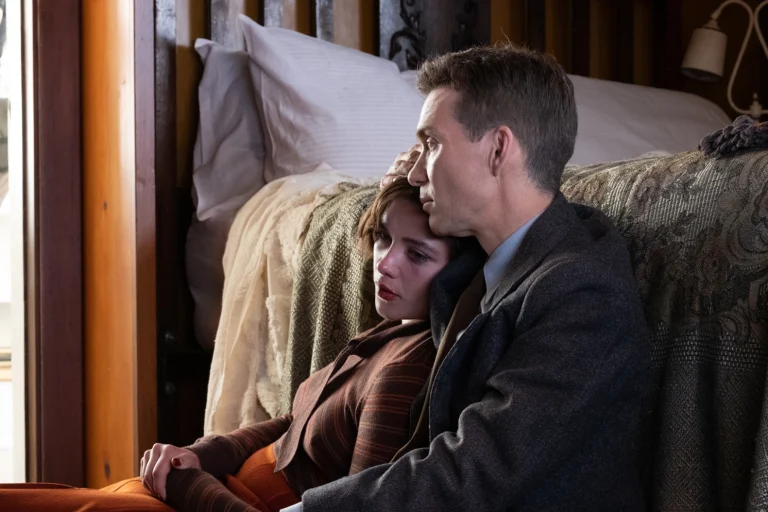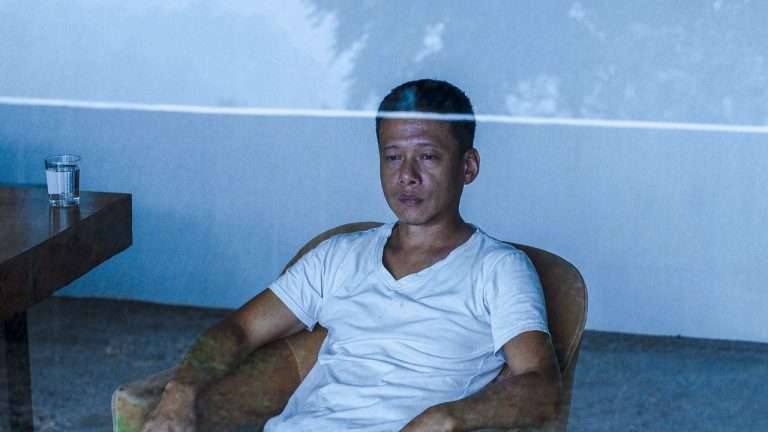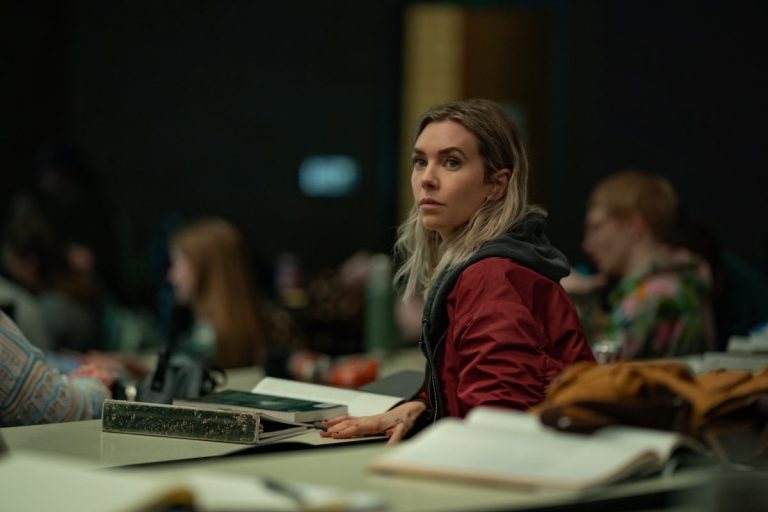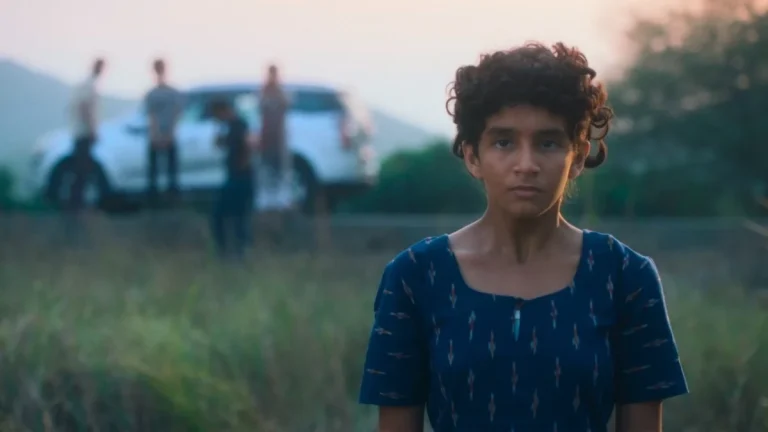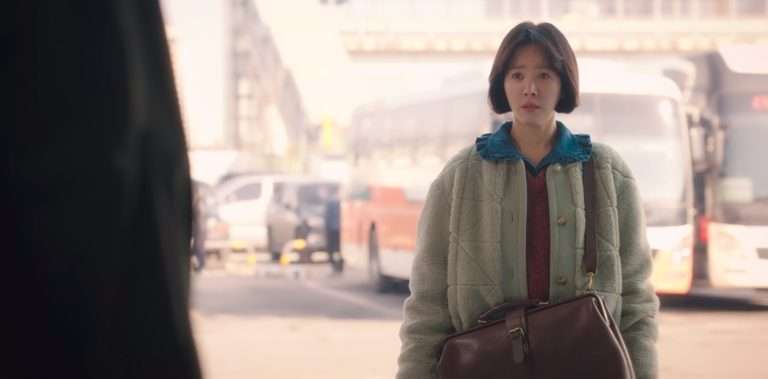Limbo (2020) Movie Review: World history is full of the sufferings of people who have lost their roots. When those fleeing in droves go anywhere, only humiliation and oppression await them. We can say for a while that no one owns the earth, but ours is a world where someone owns every piece of land. Refugees have no country, no rights, no job, no culture. Refugees flock to refugee camps. There they will rot, be a victim of crime and harassment, and die fighting. Stories of such people are nothing new in cinema. There is Ali: Fear Eats Soul, Dheepan, Le Havre, Live and Become Sin Nombre, and countless other movies. The 2020 British film “Limbo,” directed by Ben Sharrock, is one of the most beautiful of the bunch. This movie also deals with themes of freedom and art.
Through a few men stranded on an endless and empty island, Sharrock tells us the tale of the lost. They are those who have been expelled from their native land or are destined to flee. They are waiting on some unknown island for permission to seek asylum in another country. But before that, the new nation must tame them. There are classes for that purpose. Those classes teach not only how to behave with the “humans” of the new country. The aim of these classes is also to teach the refugees to acclimate themselves to the cultural environment of the new nation. These classes are meant to “culturally” tame them before sheltering them. Every nation has its own culture. The host country’s most significant task is to culturally “delineate” and enslave that population. That task is done first, and that’s why they were put there for.
The main character is Omar, who plays the Oud (a musical instrument). He is a Syrian Muslim. His father and grandfather are Oud reciters. Omar’s family are survivors of the brutal Civil War in Syria. They live somewhere in Turkey. Now Omar is waiting for a visa on an island in Scotland to immigrate to London. Other main characters are his friend Farhad and Omar’s mother, who never appears in person. Omar shows us the tragedy of his own life through his conversation with his mother. Through each phone call, the director informs us about the tragic situation of the character’s motherland and the dangers faced by his brother Nabeel who is fighting there.
Nabeel is representative of the thousands of people fighting in Syria. He enters Omar’s life in a dream. Omar’s mother sends a dessert of apricots to his brother. While tasting it, they worry about the disappearance of the apricot trees. Apricot trees are the lifeblood of the Syrian people. They are the reflection of hope and dreams. That is why the death of apricot trees should be seen as the death of a nation’s hope.
Nabeel expresses his frustration that his mother did not call him. Nabeel is angry with Omar for leaving the country without fulfilling his duty to his country. Omar laments that he hasn’t played Oud since leaving Syria, which is death for an artist. Once upon a time, a bird in Afghanistan forgot its song. The story goes that it finally died without singing. Omar’s dream is an expression of his guilt. Guilt about neglecting his brother and music.
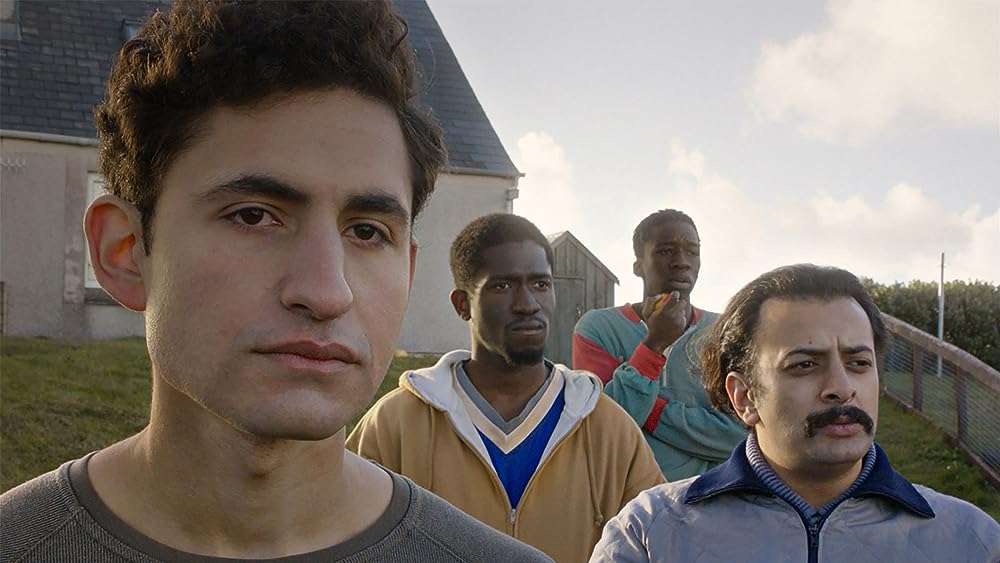
But there is another more important character in the film. Omar’s grandfather’s Oud is a musical instrument in his hand. At the same time, it is a burden and a treasure of memories of his past. But he cannot play Oud. His right arm is broken and bandaged. His father blames him for not playing Oud daily. His father says that Oud is something that should be played daily. Go to Turkey, his father says, where you can live by playing Oud on the streets. In Syria, Omar is famous as an Oud player. But in the island’s deafening silence, Omar’s music was lost – not just because of a broken arm.
Any art needs freedom. Art dies without freedom. Aleksandr Kuprin’s famous short story “Gambrinus” tells the story of a violinist who is repeatedly tortured in prison. His occupation was playing the violin at a bar in a port town. But the police caught him and tortured him. His hands were beaten and broken. Yet he keeps the music straight through all the oppression and persecution. Despite being unable to play with his hand, he dazzles his admirers with a musical instrument that he plays with his mouth. “Well, granted, you can mutilate a man. But art will survive and triumph over everything,” says Kuprin.
In Limbo, however, Omar cannot fight. He is waiting for someone else’s generosity. Omar’s signature is the silence of a winged nightingale. He wandered the island with his beloved Oud. Omar was silent and unresponsive. That is why he accepted the insults of the natives without objection. After all these insults, he traveled with them and accepted their bounties. Omar’s life is like the life of all refugees. Refugees are assigned a life of slavish obedience, even when their identity is denigrated.
Omar and his friends await permission to immigrate from Syria to England. He waits for his visa in solitude on an uninhabited island in Scotland. Others also wait for visas like him on the vast, silent, and lonely island. The single public telephone is the only link connecting them to the world. Omar occasionally talks to his mother on the phone during his solitary journey through the island. Every conversation with his mother brings him deep sadness. And those are the worries of the people he left behind. When we leave our country, we leave behind not only our relatives but also our own identity.
The camera captures Each character in Limbo, wandering along the long, endless paths and the sense of alienation it gives. Even if they look at the postman, who occasionally comes with confused eyes, they say, “Once it will come.” Omar is often subjected to racial abuse by locals. The film not only portrays the adverse impact on refugees’ sense of identity but also zeroes in on the Islamophobia growing worldwide.
A refugee camp is not a tourist spot or a place for dreaming. They are the place where dreams get killed. It was there that Vasif’s dreams of becoming a Chelsea club player were shattered. The film ends with Omar playing Oud in an evening that immerses the island in music. Then Omar walked with his Oud into the endless wilderness of the island. Omar walks towards the open sky of freedom. The film ends with a message that art flourishes only under the infinite sky of freedom.

